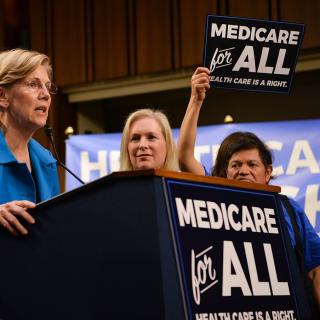Advertisement
Obamacare (The Patient Protection and Affordable Care Act) PPACA has been alternately called both things. In the hyper-ideological world our political system labors under these days, the reality is that the PPACA is both to different constituencies.
Here in Ohio and in the other states whose political power structure maintained the vociferous and unanimous opposition to the law, PPACA is looking less like a godsend and more like a Rube Goldberg contraption that won’t provide the solution to the health care access crisis.
In states who have, on the other hand, dealt with reality and implemented the law to the best of their abilities; i.e. set up state exchanges, expanded Medicaid etc, tens of thousands of their citizens are benefiting from gained access to insurance if not financial protection from medically precipitated financial crisis. It is important here to remember that in the seven years since Massachusetts implemented the state model for the PPACA, the rate of medically precipitated bankruptcy has seen no statistically significant decline!
In Ohio, any participation in the federal law was a dead issue until the medical provider establishment (Ohio Hospital Association) weighed in to support the Medicaid expansion. Furthermore, for all the ideological blather by “conservatives” about local control, the majority party in state government dug in their heels and refused to manage the administration of the law and consequently Ohioans are subject to the federal exchange and all its complexity and “glitches.” I’m not a lawyer but to my mind this is malfeasance at the very least and certainly doesn’t represent the best interests of the citizens of Ohio.
For individual Ohioans the challenge will be to maximize the benefit this law holds for their individual financial situation. Frankly the individual penalty for non-compliance is nothing more than a nuisance. For business non-compliance might hold a $2000 dollar penalty for non-compliance, however, the cost for purchasing insurance might approach four times that figure. Additionally, for the working poor, Medicaid expansion in Ohio will truly be a godsend, if it survives the inevitable legal challenges.
The difficulty for most Ohioans in the middle, who currently purchase health insurance on the individual market, is the mind boggling complexity. In states like Ohio, the number of plans that people will need to consider might conceivably approach 100 given all the iterations of out of pocket costs, deductibles and coverage levels. The question I guess you need to answer is this; Am I and my loved ones Bronze, Silver, Gold or Platinum human beings? Or which one can we afford to be?
Therein lies the main problem. The PPACA continues to rely on profit-first insurance companies whose stock holders on Wall Street demand maximized return on capital. That capital is comprised of the insurance premium dollars paid to them minus the actual cost of care for the population they serve. Meanwhile, the hospital corporations are consolidating to build power against any reduction of their “piece of the pie.” Left out of this equation with no position at the table are patients.
As citizens we must demand universal access to a single standard of quality care (not insurance) for all without regard to financial status.



